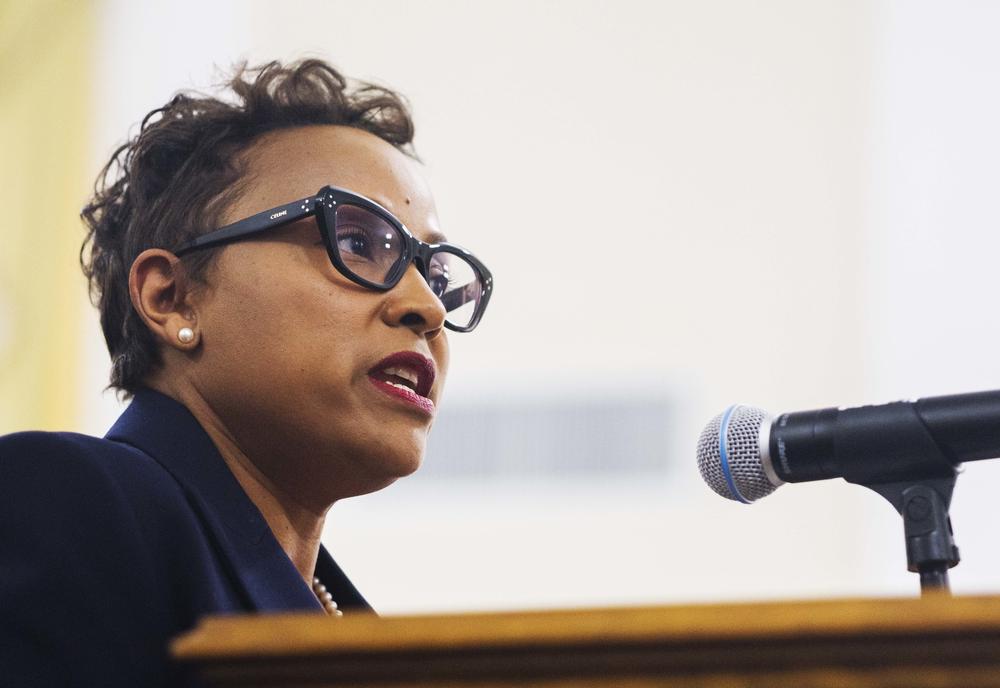
Section Branding
Header Content
Georgia Today: Rivian zoning challenges; Economic impact of arts in Savannah; Great Books program
Primary Content
LISTEN: On the Wednesday, Jan. 3 edition of Georgia Today: A state judge sides with automaker Rivian in a battle over zoning; a new study of Savannah's economy reveals the financial impact of arts and culture; and who decides what makes a great book "great?" Some students in Macon are re-evalating what's considered a classic.

Peter Biello: Welcome to the Georgia Today podcast from GPB News. Today is Wednesday, Jan. 3. I'm Peter Biello. On today's episode, a state judge sides with automaker Rivian in a battle over zoning. A new study of Savannah's economy reveals the financial impact of arts and culture. And who decides what makes a "great book" great? Some students in Macon are reevaluating what's considered a classic. These stories and more are coming up on this edition of Georgia Today.

Story 1:
Peter Biello: Electric vehicle manufacturer Rivian scored a win in court yesterday as it tries to build a manufacturing plant in Georgia. A state judge in Morgan County has dismissed a zoning challenge to the plant planned for about 45 miles east of Atlanta. In a ruling yesterday, Superior Court Judge Steven Bradley said local regulations don't apply to the property because the state owns it. Local residents had sued to stop the construction of the $5 billion facility. They're worried about the environment and their quality of life. The residents argued unsuccessfully that state ownership couldn't override local zoning because the land was being leased to a private company. The ruling clears another legal hurdle for the project, which is expected to create more than 7,000 jobs.
Story 2:
Peter Biello: When state lawmakers convene for the legislative session next week, two prominent Republicans will not be there. Harlem state Rep. Barry Fleming announced his resignation after Gov. Brian Kemp last week named him to a judgeship in Columbia County near Augusta. Separately, Carrollton state Sen. Mike Dugan is resigning, saying he intends to run for the U.S. House seat being vacated by West Georgia congressman [and] Republican Drew Ferguson. Both Fleming and Dugan served in various leadership posts before failing in separate bids for higher positions more recently. Kemp is now required to call special elections within 70 days to fill their seats.
Story 3:
Peter Biello: The Georgia-based Pivot Fund has received a grant to help it map the most trusted sources of news in several Midwestern states. The Pivot Fund provides grants to news organizations run by people of color and so far has focused on Georgia. Now, thanks to a grant from the Joyce and McKnight Foundations, it will begin mapping trusted news outlets in Minnesota. Tracie Powell is founder of the Pivot Fund.
Tracie Powell: In order for us to remain relevant and deliver fact-based news and information of people, to keep people more informed, this is what we're going to have to do.
Peter Biello: These news sources are often hyperlocal, rural and publishing exclusively on social media. The Pivot Fund also plans to map trusted sources of news in Michigan and Illinois.
Story 4:
Peter Biello: A new study finds Savannah's Arts and Culture nonprofit organizations generated $120 million of economic activity in 2022. GPB's. Benjamin Payne reports.
Benjamin Payne: The report by the nonprofit group Americans for the Arts analyzed more than 350 regions across the U.S. It found over $35 million in expenditures by Savannah's arts and culture nonprofits, three times higher than the median for a city of similar size. Audiences spent even more: about $85 million, which was five times the median for Savannah's population. Total spending by audiences was even higher, since the study didn't include ticket revenue, but rather money spent during their stay, like meals and lodging. Nor did the study look at spending related to for-profit events. Local tax revenue totaled more than $2.6 million, about three times the median. For GPB News, I'm Benjamin Payne in Savannah.

Story 5:
Peter Biello: One of the two newly redrawn state House districts centered in Macon-Bibb County, got its first declared candidate today. As GPB's Grant Blankenship reports, so far, Democrat Tangie Herring is the only one running for the seat.
Grant Blankenship: Herring had been gearing up for a primary challenge against House Minority Leader James Beverly, but the new maps carved Herring out of District 143. Instead, the Macon native, who spent 28 years working in the Atlanta public school system, was drawn into the now-tighter District 145, made up of much of downtown Macon, western Bibb County and southern Monroe County. Herring says that presents a new opportunity to elevate the concerns of Middle Georgia under the Gold Dome.
Tangie Herring: I know that education is important. I know mental health is important for a lot of people. I know that public safety is important. But I want to really hear from the people.
Grant Blankenship: So far, no other candidate has declared for House District 145, leaving Republican Robert Dickey's former seat to be filled by the May 21 general primary. For GPB News, I'm Grant Blankenship in Macon.

Story 6:
Peter Biello: Many universities across the country have Great Books programs, classes where students study and debate the literature of the Western canon. Now, students in Great Books programs are asking what makes the Western canon so great? GPB's Eliza Moore takes us to a class at Mercer University in Macon.
Dr. Crescent Rainwater: But if we go to Chapter 8, verses 22 through 23 ...
Eliza Moore: On a Friday afternoon, Dr. Crescent Rainwater leads a discussion on the Book of Proverbs from the Bible in her sophomore Hebrew and Christian Traditions class. In religion class, the meaning of this passage might not be up for debate. But in this Great Books class, it is.
Whitney Wallace: One of my favorite things to do in this class is play devil's advocate. Literally. In this case, I guess literally. What is learning without opposition?
Eliza Moore: One here, students like Whitney Wallace can argue about things like the depiction of women in Proverbs 31, which describes the ideal wife as being worth far more than rubies.
Whitney Wallace: But I think that the depiction of a like, quote, "good woman" — we think of the Bible as not loving woman. I think it's kind of a step towards that. And I think — I think it really shifts that perspective from some of the more misogynistic views that we've seen.
Eliza Moore: But it's still a man's view of women. And some students in the Great Books program say that's the problem. The curriculum doesn't make space for women's voices or, says student Niyati Patel, even for voices of people who aren't white men.
Niyati Patel: We just finished reading Hobbes. Okay, well, I see a lot of Hobbes and Descartes. And so, I mean, they're both white men. There's one from Great Britain. Sure. One from France. Sure.
Eliza Moore: She says that's not a way to understand the whole world.
Niyati Patel: I feel like I'm rereading the same packaged opinions over and over again. And so that — that gets — that's what happens when you have the same walks of life telling the same story, right?
Eliza Moore: Hobbes, Descartes and the Bible are just a few of the 50 or so texts in the Great Books curriculum at Mercer, which starts with Homer and wraps up somewhere around Dostoyevsky or Camus. It's not until the final year that students get to a woman, Jane Austen — unless a professor like Dr. Crescent Rainwater chooses to deviate from the canon as many other professors have also chosen to do.
Dr. Crescent Rainwater: I can say, Oh, well, I really think students would benefit from reading the medieval English mystic Julian of Norwich, who was a woman. She's reading the scriptures and having an encounter with God that's very different from the other things they're encountering in this class.
Eliza Moore: Rainwater agrees with student Niyati Patel. There's a problem here.
Dr. Crescent Rainwater: There is a particular version about history that gets perpetuated by repeatedly reading these same authors.
Eliza Moore: For instance, she says, take Thomas Jefferson and the Declaration of Independence, asserting all men are created equal.
Dr. Crescent Rainwater: If you just read that and you don't read Frederick Douglass arguing that, "well, if you actually believed that, then everyone in this country would have the rights of a citizen."
Eliza Moore: Citizenship is what the Great Books canon has always been about, says Dr. Charlotte Thomas, program director.
Dr. Charlotte Thomas: In order for democracy to work, you needed to have an educated citizenry.
Eliza Moore: Thomas says historically, that's been the goal of a liberal arts education. But from the very beginning of Great Books, what kids read has been up for debate.
Dr. Charlotte Thomas: But there's this sense that — that the list of great books came down from Mount Sinai, carved on to stone, and no one can ever change them. The truth is that the book lists are changing all the time.
Eliza Moore: Where programs haven't changed, they risk disappearing altogether. Thomas says seven new texts from women or people of color have been added to the Mercer program. Student Niyati Patel says that's a start, but:
Niyati Patel: I don't know if like sliding two or three diverse texts into the curriculum is going to be good enough.
Eliza Moore: Patel would like to see professors continue to push the boundaries of Mercer's Great Books program. For GPB News, I'm Eliza Moore in Macon.
Peter Biello: And that's it for this edition of Georgia Today. If you want to learn more about these stories, visit GPB.org/news. And if you haven't yet subscribed to this podcast, do it now. We'll be back in your podcast feed automatically tomorrow afternoon. And if you've got feedback, send us an email. The address is GeorgiaToday@GPB.org. I'm Peter Biello. Thanks again for listening. We'll see you tomorrow.
---
For more on these stories and more, go to GPB.org/news



